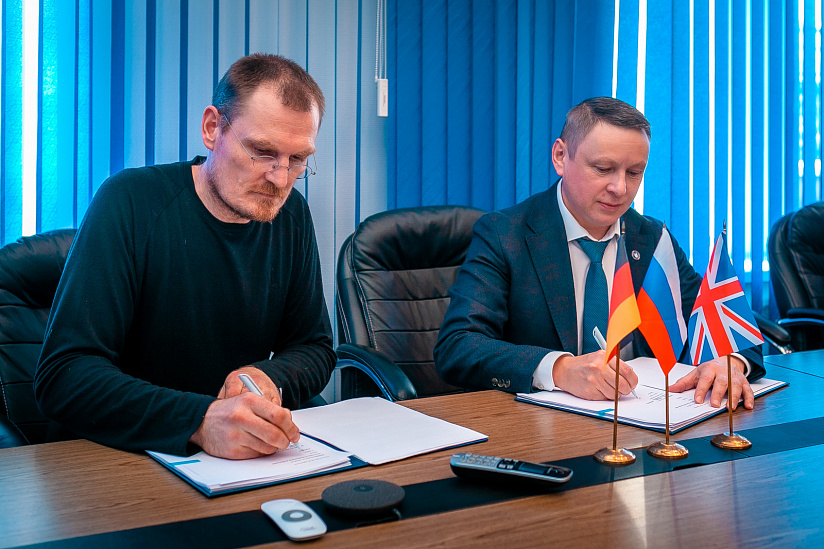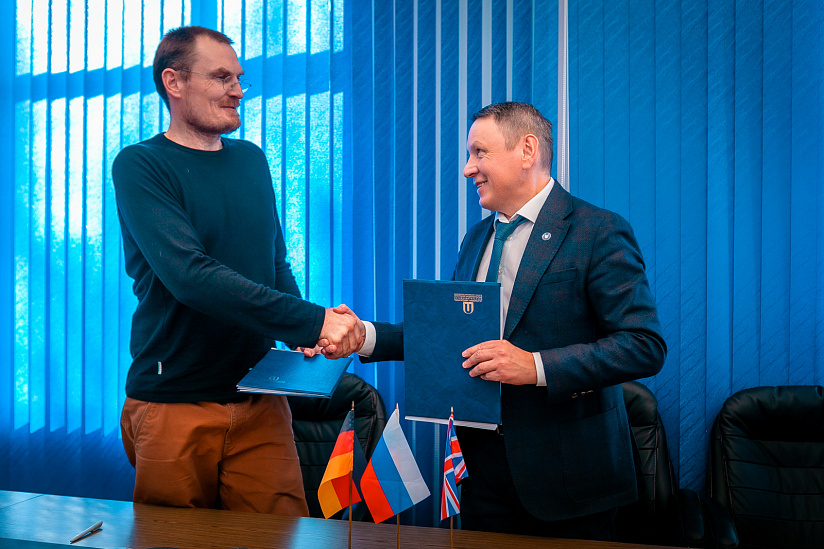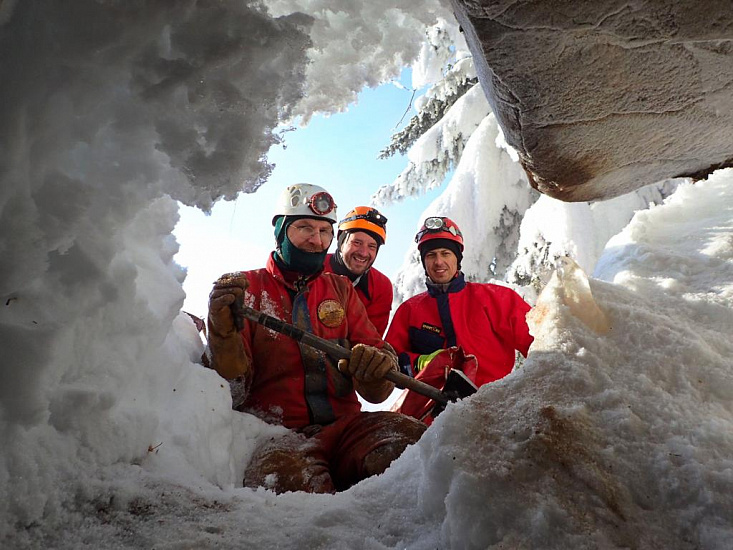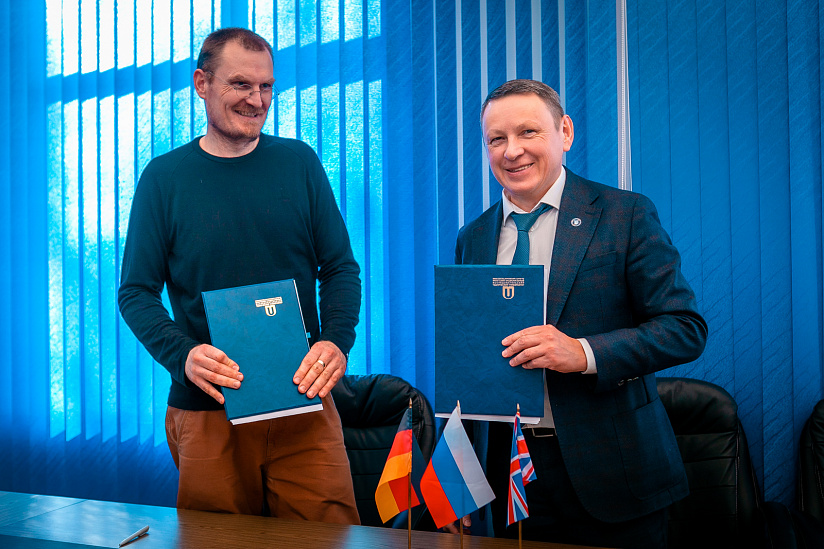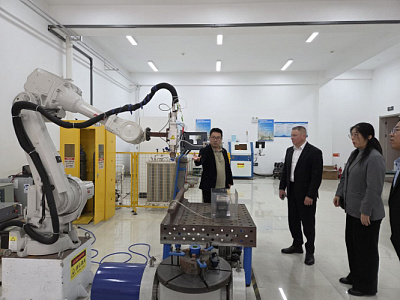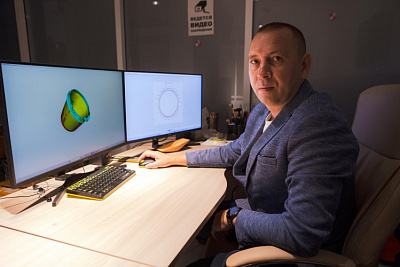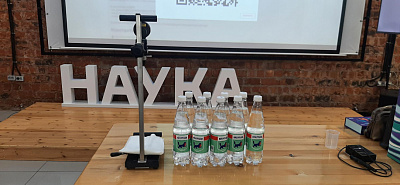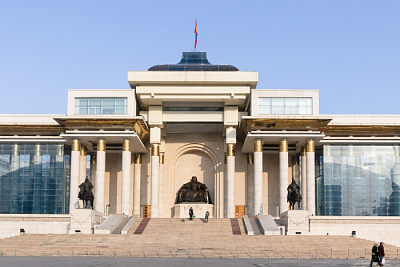INRTU and Northumbria University (Great Britain) intend to cooperate in the area of paleoclimate reconstruction
INRTU Rector Mikhail Kornyakov and Associate Professor at Northumbria University in Newcastle (UK) signed a cooperation agreement. The parties intend to develop a project to reconstruct the climatic changes of the past in Siberia. As part of the event, the British scientist gave a lecture to the Polytechnic students about paleoclimate and speleological projects.
Northumbria University is located in the center of Newcastle upon Tyne. The educational institution was founded in 1969 through the merger of colleges that trained technologists, managers and designers. The university has over three thousand students. The University is developing the project "Reconstruction of permafrost dynamics in Siberia using stable and bound isotopes". The initiative is designed for four years and is being implemented under a grant from the Leverhulme Trust Foundation.
The project is led by Associate Professor of the Faculty of Engineering and Environment, Dr. Sebastian Breitenbach. Paleoclimatologist studies caves and carbonates using the chemistry of carbonates and the geochemistry of stable isotopes as tools to recreate the ecological and climatic conditions of the past. The scientist conducts research work in Germany, Siberia, India, New Zealand and Belize. Sebastian Breitenbach first came to Irkutsk 20 years ago on an internship with the DAAD.
In February 2022, Irkutsk Polytechnic University joined the program. The project coordinator at INRTU is the Vice-rector for Scientific Work Alexander Kononov. Since 2008, he has been cooperating with his British colleague, participating in joint expeditions, engaged in paleoclimatic and geocryological reconstructions of Eastern Siberia and Mongolia (Holocene and Pleistocene period). The territory of unique research by world standards - from the Gobi Desert to the Arctic Ocean.
According to Alexander Kononov, the agreement defines the direction of work of both universities. Scientists will have to study the climate of the past and understand how the southern border of permafrost, passing through the Baikal region, changed.
